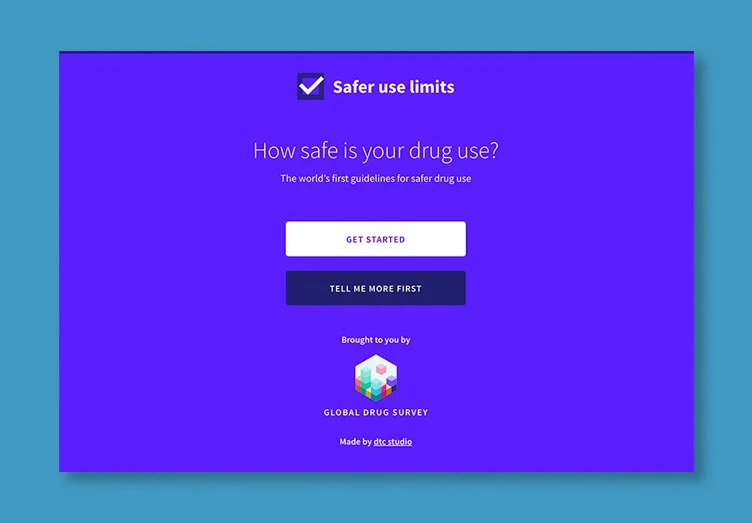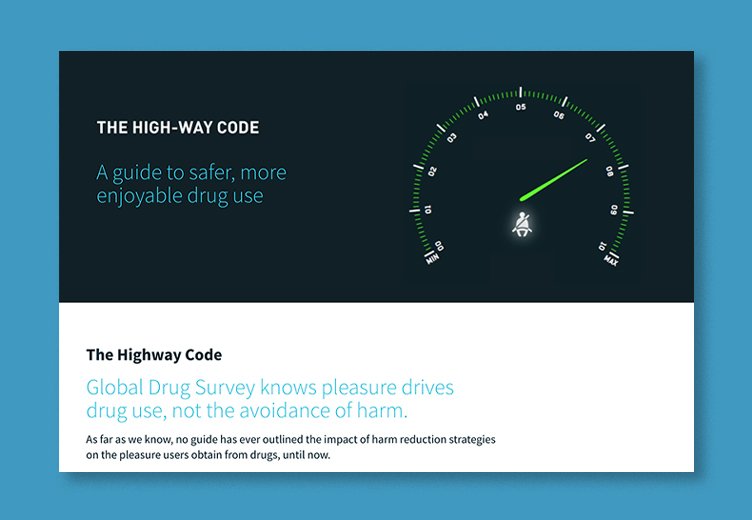Engaging video education without scare tactics or judgment.
How SSP helps your students
Created by Professor Adam R Winstock and a team of other experts, this programme provides evidence-based information and practical strategies to reduce harm from substance use and improve overall wellbeing.
SSP offers all students at your university open access to a 42 module, credible, highly-evaluated, online education programme. The modules are assessed to confirm knowledge transfer and certificates can be awarded for those choosing to complete a minimum number of modules.
We offer a mandated course, requiring completion of all modules for universities seeking to offer a non-punitive, non-criminal sanction for students deemed to have contravened university policy.
The course can be hosted within a university’s existing learning management platform, with anonymous data collection and compliance with information governance, GDPR, ICO and research ethics requirements.
All data, at all times, is anonymous with no recording of emails or any other personally identifiable data.
Course Content
The SSP is one of 4 case studies, showcasing new initiatives to help reduce demand in the Universities UK framework on addressing student drug use released in July 2024.
Our modular programme lets students chose what they want to learn more about. Featuring engaging videos, that cover everything from a drug’s history, effects, uses and harms the course won’t bore, patronise or preach. The modules place the use of substances within the wider context of a person’s life, raising awareness of the risks associated with alcohol and other drugs use, and how to minimise these. The programme is fully evaluated with pre- and post-module multiple choice questions to demonstrate effective knowledge transfer. Our course covers a wide variety of topics ranging from drugs effect, the law, sexual assault and consent and how to look out for your mates.
Topics covered in the course
We don’t cover drugs in isolation: we deal with the law, sexual assault and consent, mental health, civic responsibility and how to look out for your mates.
-
The basics in simple language: pharmacology, receptors, dose-related risk, psychiatric and physical health conditions that increase vulnerability and evidence-based harm reduction.
-
Delivered by a lawyer, PhD student and a retired senior police officer, we cover UK drug classification and penalties for possession and supply, the law in practice for those at university and the history of international and UK drug laws.
-
The effects of different drugs on sexual function and pleasure and their link with high-risk behaviours. We cover alcohol, chem sex, drugs and stimulants – and the problems that can arise.
-
We dispel myths, share the facts and stress the role that alcohol plays. We encourage all to call out unacceptable behaviour – do something: distract, delegate and be direct.
-
We describe the range of treatments that can be provided to support those with problems related to drug use, from medications to talking therapiesies and when they might be indicated and how to access them.
-
From differences in physiology, metabolism and hormones to cultural expectations, stigma, barriers to treatment fertility and pregnancy, these modules provide knowledge to empower choices and optimise health and well-being for women who may choose to use drugs.
-
Covering the common neurodiverse conditions (ADHD and ASD) and the overlap between their symptoms with normal development and association with common mental health disorders and substance use, this module covers assessment, diagnosis and treatment and why early intervention can make a difference.
-
Delivered by a lawyer, a PhD student and a retired senior police officer this answers questions submitted by students and covers your rights and what to do if you come into contact with the police.
-
Friends are often the first people to spot when things are getting out of control. Delivered by a student, we offer 10 top tips on how, when and where to have a conversation raising worries and concerns with someone you care about and how to help.
-
We discuss the definition of consent, how it works in practice, how intoxication can make people vulnerable, how consent is an ongoing process and how people can be respectful and aware.
-
We discuss the links and common issues facing students and highlight the adverse effects substances can have on mental health, discuss self-medication, medication-drug interactions and how to stay happy and healthy.
-
Delivered by experts in emergency medicine, this module was added at the request of students. We discuss how to avoid needing emergency treatment and demonstrate practical first aid when dealing with common situations including passing out, freaking out and becoming frightened and when and why to call 999.
-
It’s about respect. We challenge the normalisation of drugs and emphasise that most people don’t ever use an illicit drug. We discuss why people choose not to use and how university as a novel setting may lead some to revise their preconceptions. We also challenge the stigma that some students may hold about the choices made by others.
-
We discuss how not doing anything about sexual assault is an active decision not to do anything. We want to encourage you to do something positive - to disrupt a situation where you see someone might be at risk. Distract, delegate and be direct are the 3Ds of disrupting sexual assault.
-
People using more drugs more frequently and mixing their use, together with the potency and purity of the drugs can increase the risk factors. We discuss how combining these factors with the set and setting for taking drugs can increase risk of ending up in the Emergency Department.
-
There have been changes in purity that can impact risk factors for use, so we discuss why it’s most important to know what you’re taking.
-
It’s about being respectful to others. We discuss thinking about how your alcohol and other drug use may impact others and how you can minimise this disruption in your household and community - like clearing up after yourself.
-
Presented by an expert with over 20 years experience in harm reduction and advocacy for gay men’s health, covering the reasons why gay men use drugs, the particular health risks and challenges they may face, issues of HIV prophylaxis and how to reduce your risk of harm and keep yourself and your mates safe.
-
The presenters share their lived experience, and motivations of substance use within their community. They challenge cultural norms and discuss the barriers to accessing support, offering practical advice on how monitor your relationship with them and the impact they have upon your and your friends.
-
The presenters of this important module define the spectrum of sexual assault and discuss patterns of behaviour suggestive of grooming and coercive control. From abuse of power and risk of of physical and emotional harm, they discuss how to help a friend you’re worried about and where to get support.
-
An expert in addiction and the link between substance use and domestic violence discusses the different forms of abuse from isolating, humiliating emotional control to financial and physical acts. She talks about warning signs, how to help a friend and what not to say.
-
The drug most commonly used by university students. Often ignored but probably the drug responsible for the greatest personal and social harm.
-
Smoked, vaped and eaten, with more potent preparations and new therapeutic uses changing the landscape. Reducing tobacco use among this group is a key public health priority. We also cover the impact cannabis can have on studying and revising for exams and explore how cannabis use can affect the developing adolescent brain.
-
A stimulant empathogen, snorted and swallowed. Education about risk, dosing and mixing with other substances is key.
-
A stimulant that is usually snorted. Higher purity and wider access are leading to increased rates of problem use and fatalities.
-
A diverse group of potent, often long-lasting drugs, where the effect of dose, set and setting remain key areas for harm reduction.
-
A dissociative anaesthetic, typically snorted. Can exert profound dose related effects with risks of accidental harms and bladder damage.
-
Used within clinical medicine for over 150 years. Moderate use is common and relatively safe while higher does can cause disabling nerve damage.
-
Sourced through legitimate prescription or access on the black market / dark net. Both can cause dependence and, especially in combination, overdose.
-
Synthetic stimulant drugs, often snorted or swallowed. Diverse functions from pleasure, performance to sex. Often assocaited with high-risk behaviours and physical / mental health harms.
-
Migrating from medicine to misuse, these drugs are often used without supervision to improve performance, cognitive ability and body image.
-
A wide range of drugs used to facilitate social engagement and sexual performance. Can be associated with high risk sexual behaviours and can make those under the effects vulnerable to others.
-
Encompasses drugs that seek to mimic existing traditional drugs such as cannabis and MDMA. Often more potent and more risky.
-
The drugs associated with criminality, overdose and death, with marginalisation and multiple co-morbid conditions often compounding the challenges faced by those who are dependent on these drugs.
-
Everyone is aware that inhaling smoke is bad for your health but nicotine dependence is the reason people smoke. Vaping could be a safer alternative.
-
Straight talking science on the risks of vaping, who it’s best for, why it’s so much better than smoking and how to stop. From what’s in a vape to dependence, the risks and dispelling media myths and stressing why we need to challenge misperceptions among younger people.
-
No longer novel or legal, the increasing range of novel synthetic drugs can mimic any class of substance. With consumers often unaware that they are taking them, novel synthetic drugs are often more potent and difficult to titrate. This module offers scientific knowledge from an international expert and advice on how to reduce risk and know what you’re taking.
-
Prescription medications are not without risk. Understanding the laws about possession and sharing prescriptions medications will help keep you on the right side of law and minimise the risk of harm to you and other people. Knowing where you obtain them from, starting to take them safely and understanding the interactions between different medications and alcohol / other drugs is vital to optimising benefits and reducing harms.
-
Presented by an expert in psychedelics and clinical trials who understands the attraction of attempts at self medication. Walking through the structured processes that guide clinical trials and how they differ from recreational use, taking into account the pleasures of community , clubbing and community and why staying safe is so important.
Drugs covered in the course
Additional Resources
There are loads of great educational resources and organisations offering legal advice out there. For scientific educational resources on alcohol and other drugs we recommend Drug Science. For legal advice on drugs we recommend Release. Other useful self assessment tools and resources are shown below.
The Staying Safe Programme has the health, safety & success of students at its core.
Would you like to implement our course?
SSP looks very promising based on pilot evaluation data. Over 85% of students found the course credible and engaging. Knowledge gain is impressive across the course modules, with correct responses on pre- and post- test MCQ assessments increasing from 14% to 85%. The course can be hosted within a university’s existing learning management platform, with anonymous data collection and compliance with information governance, GDPR and research ethics requirements.












